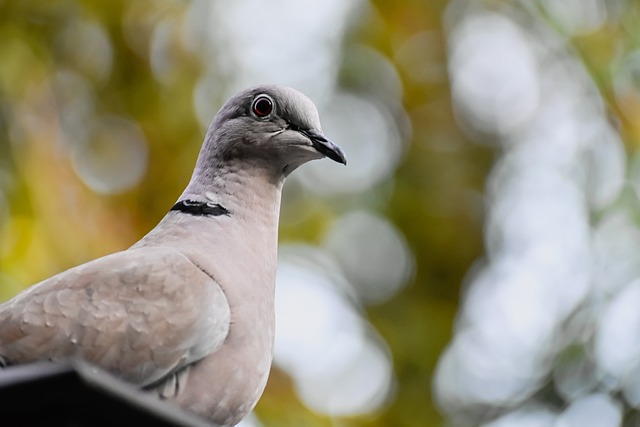The H5N1 virus is a strain of avian influenza that has been circulating among birds for several decades. In the spring of 2024, H5N1 avian influenza took an alarming turn, as mammal-to-mammal (livestock specifically) transmission appeared to be occurring. If the H5N1 avian influenza virus mutates to the point where infection is transmitted from human to human, it could lead to a whole new and potentially catastrophic pandemic that humanity will have to deal with.
Why worry about H5N1 bird flu now?
The H5N1 avian influenza virus has been around for decades, and mainly infects birds and some mammals. Why are scientists now concerned about the potential for H5N1 to develop into a devastating and deadly influenza pandemic?
Scientists, such as epidemiologists who study the spread of disease, are increasingly concerned about how the H5N1 avian influenza virus has recently spread at an increasing rate among birds and is now spreading among mammals, such as livestock. The increasing prevalence of the virus suggests mutations that make it easier to bind to receptors in birds and mammals.
Increasing signs of spread among mammals bring the bird flu pandemic one step closer to spreading among humans, because we are mammals. Once the H5N1 virus mutates to a point where it can easily enter human cells in the nose and mouth, it will make it easier for the H5N1 virus to move quickly through the human population like wildfire, as there is little human immunity to the H5N1 virus. The virus. Once the spread of the virus reaches this high rate, we will be dealing with a pandemic.
The question that needs to be answered is whether the virus spreads between mammals such as ferrets or pigs? Both of these mammals have similar viral receptors as humans. If the virus spreads among rodents and/or pigs, it would be an ominous sign that the H5N1 virus has mutated to the point where it could easily spread between humans, and that the expected H5N1 avian influenza pandemic is approaching.
Response to pandemic H5N1 avian influenza in humans
The response to the H5N1 avian influenza pandemic should be straightforward, unlike the COVID-19 pandemic, which has been difficult to respond to because little is known about the new SARS-CoV-2 virus and the resulting COVID-19 disease. Influenza pandemics are nothing new to the healthcare community and vaccine makers. The World Health Organization has already identified several conventional influenza vaccines that can be produced relatively quickly to address a pandemic caused by a strain of the H5N1 influenza virus.
Of course, the limiting factor in the response to an influenza pandemic is to get the public to take a vaccine that prevents or reduces the incidence of H5N1 influenza and helps control the spread of the H5N1 virus. The anti-vaccine movement has grown dramatically since the COVID-19 pandemic when previously unused mRNA vaccines were put into use and many people questioned their safety and effectiveness.
Although the H5N1 influenza vaccine would be a conventional vaccine that uses inactivated or weakened H5N1 influenza viruses to cause the human immune system to produce antibodies to the virus, it will likely be received with skepticism and at a lower rate of use by a skeptical public. After the controversy over the Covid-19 vaccine. However, if an H5N1 avian influenza pandemic occurs that has a fatality rate of nearly 50%, many people will likely put their fears aside and take the vaccine to prevent infection and reduce the severity of symptoms.
How to prepare for an H5N1 avian influenza pandemic
The best way to prepare for a flu pandemic is to boost your immune system naturally. Make sure to eat plenty of fruits and vegetables, exercise, and get plenty of sleep. Proper nutrition, a good diet, exercise and adequate sleep help keep the immune system in good shape and ready to fight the viruses that cause the flu.
One reason flu season occurs during the dark months of late fall, winter, and early spring is because humans don't get as much sunlight during the dark months. We need exposure to sunlight to produce vitamin D, which is a powerful immune system booster and helps protect against viral illnesses such as colds and flu. If you're not exposed to sunlight, consider taking vitamin D supplements during the dark winter months to boost your immune system.
Other supplements that help boost the immune system and fight flu infections include vitamin C, turmeric, probiotics, and zinc. Of course, never start taking supplements without consulting your doctor or medical professional first, because supplements can be dangerous if taken in excess, and some supplements may worsen your medical condition.
Herbs, spices and antiviral supplements
Incorporate herbs and spices into your diet that have antiviral properties to help the body's immune system prevent viral infections. Also use nutritional supplements that help boost your immune system's ability to prevent virus infections.
How to avoid getting the flu
In general, avoiding the flu depends on using common sense. Get a flu shot when available. Get enough sleep and exercise to help your immune system work at peak efficiency. Make sure your immune system has the tools it needs to respond to foreign invaders such as the N5H1 influenza virus by getting the nutrients you need through diet or supplements if necessary. Of course, avoid people who are sick and, if necessary, wear an N95 or larger mask, especially in crowded areas.

Comments
Post a Comment